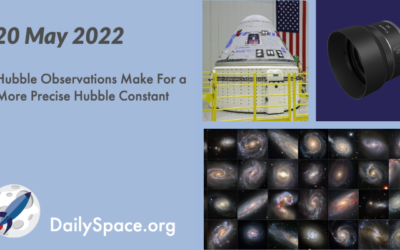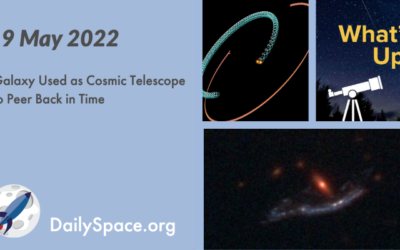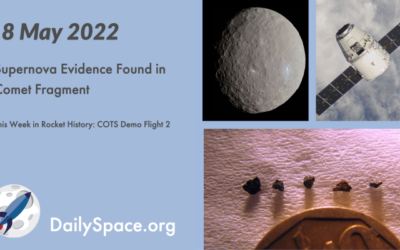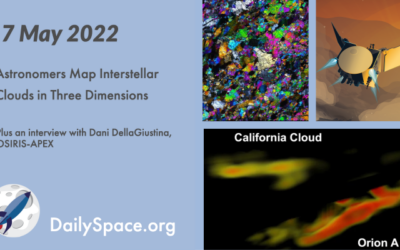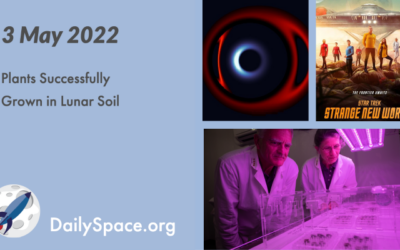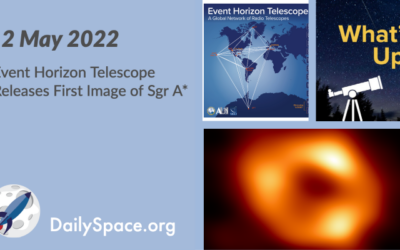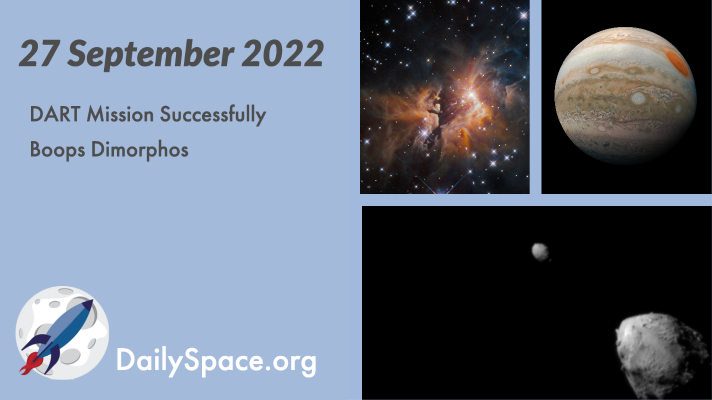
DART Mission Successfully Boops Dimorphos
After ten months of space travel, NASA’s DART spacecraft arrived at the asteroid Didymos, targeted the moonlet Dimorphos, and successfully flung itself at the surface. Multiple observations confirm that the system brightened and even managed to resolve a cloud of debris. Plus, rocket launches, an update on the SLS, some broken physics, and International Observe the Moon Night.
Catch us on NowMedia TV
Saturday 11pm Central / midnight Eastern
Sunday 10pm Central / 11pm Eastern
Watch live on these stations: Houston 21.10, Atlanta 22.10
or tune-in on Apple TV, Roku, YouTube Live, or Amazon Prime
Hubble Observations Make For a More Precise Hubble Constant
Over the past three decades, astronomers around the world have been using the observations of the Hubble Space Telescope to more precisely calculate the expansion of the universe. And they have converged on a precision of just over 1%. Plus, Boeing launches Starliner, Voyager 1 struggles, and Erik reviews his favorite camera lens.
Galaxy Used as Cosmic Telescope to Peer Back in Time
With a groundbreaking technique, astronomers have used a galaxy as a gravitational lens to backlight two hydrogen clouds, peering back 11 billion light-years at our early universe. Plus, volcano water on the Moon, a quadruple star system, and this week’s What’s Up takes a careful look at the Sun.
Supernova Evidence Found in Comet Fragment
A forensic analysis of the element concentration found in the Hypatia stone finds evidence in the cometary fragment, which may have impacted Earth 28 million years ago, of a supernova origin story. Plus, Ceres, Mars, and this week in rocket history, we look back at SpaceX’s COTS Demo Flight 2.
Astronomers Map Interstellar Clouds in Three Dimensions
A team of scientists combined stellar locations from the Gaia mission with dust and cloud maps from the WISE and 2MASS catalogs to create amazing three-dimensional images of the California Cloud and Orion A Cloud. Plus, rocket launches, the origin of carbon, and an interview with Dani DellaGiustina, principal investigator for the OSIRIS-APEX mission.
Plants Successfully Grown in Lunar Soil
Using a mere twelve grams of lunar soil returned by the Apollo missions, scientists have successfully grown plants in the lab. With a wealth of genetic data on hand, they can now analyze the changes to the plants and the soil. Plus, stellar cannibalism, a black hole merger, brown dwarfs, water on Mars, and a review of “Star Trek: Strange New Worlds”.
Event Horizon Telescope Releases First Image of Sgr A*
In an early morning announcement, the Event Horizon Telescope collaboration finally revealed their first image of Sgr A*, the black hole at the center of the Milky Way galaxy. We have a special episode entirely about this amazing new image and the science behind it. And this week’s What’s Up is a total lunar eclipse.


 We record most shows live, on Twitch. Follow us today to get alerts when we go live.
We record most shows live, on Twitch. Follow us today to get alerts when we go live.

